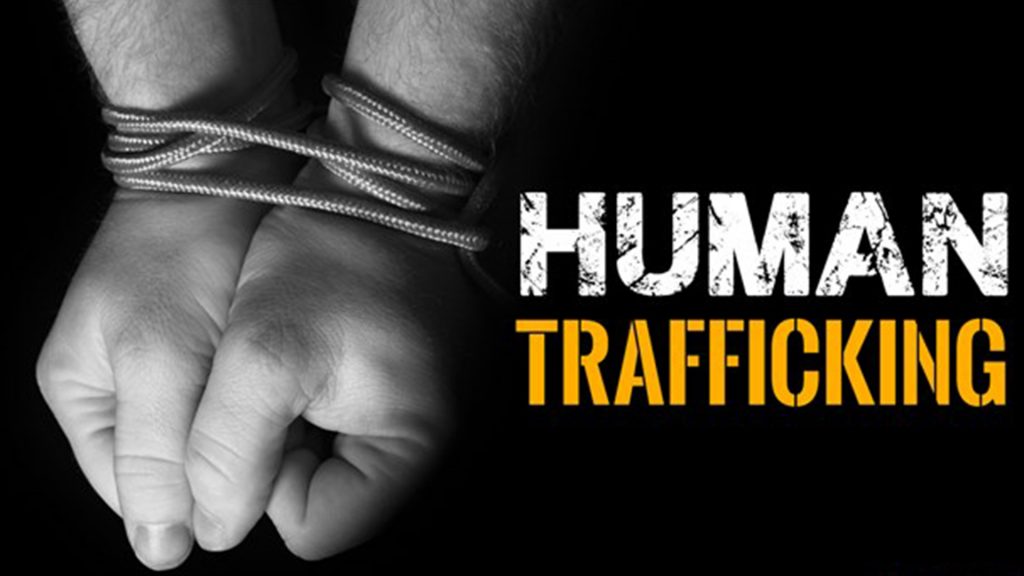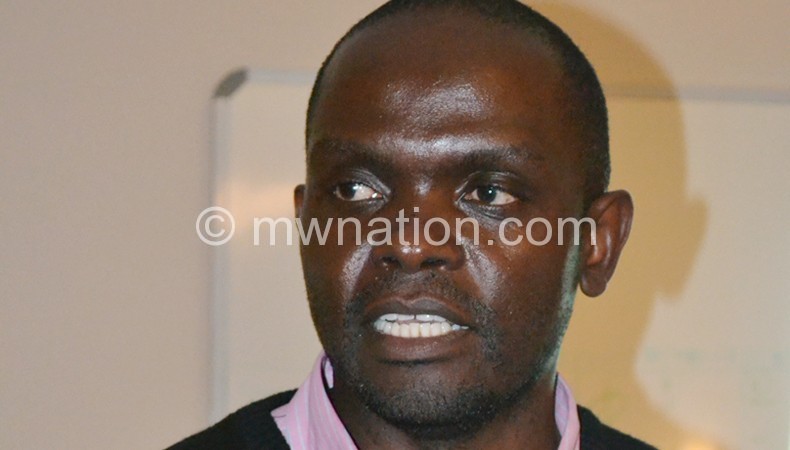Malawi falters in USA anti-human trafficking test
The United State (US) report has disapproved government’s anti-human trafficking fight due to inadequate efforts towards tackling sex trafficking and sentencing convicted traffickers with lenient sentences.
While acknowledging the gaps in prosecution and sentencing, High Court and Supreme Court of Appeal Registrar Gladys Gondwe has blamed it on lack of protection for witnesses and poor coordination in investigation which leads to weak evidence.

The Office to Monitor and Combat Trafficking in Persons which operates under the US Department of State published the dossier titled the 2021 Trafficking in Persons Report: Malawi. It assesses the country’s efforts to tackle human trafficking in the just ended year.
Uploaded on the US Embassy in Malawi website www.mw.usembassy.gov recently, the report also reveals that anti-trafficking efforts in the country were embroiled in official complicity, a situation where some officials block the government’s efforts to tackle the vice.
“The government did not meet the minimum standards in several key areas. Government efforts to address sex trafficking were inadequate compared to the scale of the problem; the government did not report investigating any sex trafficking crimes or identifying any sex trafficking victims during the year.

“Credible reports of official complicity continued to impede the government’s efforts to carry out anti-trafficking law enforcement efforts and proactively identify trafficking victims,” the report reads in part.
On a positive note, the report commended Malawi for demonstrating increasing efforts to tackle human trafficking as compared to 2020.
“These efforts included initiating more trafficking investigations and prosecutions; identifying more trafficking victims; developing standard operating procedures and an implementation plan to identify victims within refugee camps and refer them to appropriate care; and establishing four new district-level anti-trafficking coordination committees,” the report reads.
The 2015 Trafficking in Persons (TIP) Act criminalises sex trafficking and labour trafficking, and prescribes punishments of up to 14 years imprisonment for offenses involving an adult victim and up to 21 years imprisonment for those involving a child victim.
However, according to the assessment, courts sentenced convicted traffickers to prison terms ranging from one to five years imprisonment.
In the report, the US also signaled that it has sustained the suspension of issuance of visas for domestic employees of Malawian officials after the government failed to push its former diplomat to pay damages of $1.1 million (over K900 million) to a woman trafficked in the United States.
“In April 2019, the Department of State suspended for two years the A-3 visa sponsorship privileges afforded to Malawi bilateral mission members as a result of an unpaid final judgment against a former Malawian diplomat for approximately $1.1 million rendered by a federal district court….
“During the reporting period, the former diplomat and the domestic worker reportedly discussed settlement but were unable to reach agreement. For the third consecutive year, the government did not report taking any further action to hold the diplomat accountable,” the report further reads.
The report categories Malawi as a source, destination and transit country for human trafficking.
In his analysis, national project officer on Trafficking in Persons ·at the United Nations Office on Drugs and Crime Maxwell Matewere said lack of technical knowledge among enforcers has contributed to poor implementation of the anti-trafficking legislation and support of victims.
He said: “There is a need for enforcement officers to be equipped with the ability to distinguish victims from perpetrators of TIP as to be able to adequately comply with the guiding principles of identification of trafficked persons under Section 27 of the Act.
“Victims cannot access assistance and support facilities unless the law enforcers have capacity to identify them as victims of TIP in order to refer them to appropriate criminal justice systems and structures.
“Lack of proper coordination mechanisms lead to problems like duplication of efforts, and failure by institutions to perform their mandate. The challenge that is currently there is that there is no policy on TIP coordination. This leads to sporadic coordination which is not effective.”
Matewere further said poor investment in cross boarder investigations of TIP cases and coordination between Malawi and other countries was also hindering the fight against trafficking.
But Gondwe in a response to a questionnaire blamed unfriendly infrastructure as some of the factors affecting TIP cases.
She said: “Despite the efforts to provide sanitary and generally victim friendly services to trafficking survivors, the progress in such interventions are extremely slow due to financial challenges.
“In the end, the survivors testify in open court…This affects the quality of the evidence adduced by the victim due to fear since she/he is seeing and confronting the abuser.”
On lenient sentences, she attributed them to TIP cases not being part of sentencing guidelines.
“Although Malawi has published Sentencing Guidelines for the lower courts, the offence of trafficking is not among those listed. The cases show wide disparity in sentencing trends and there is a need to establish ground rules for uniformity,” said Gondwe.
The registrar also blamed acquittal of some offenders on poor coordination in the investigation and prosecution process.
She added: “In most instances there is clear lack of coordination between the investigator and the prosecutor which results in critical evidence missing and eventually the suspects are acquitted for lack of evidence.”
“In other cases, the charges levelled against the suspects are not proper either due to incomplete investigations or due to unwilling witnesses. A defective charge limits our ability to sentence effectively.”
Lack of witness protection facilities and measures also contribute to challenges in prosecuting TIP cases, she further said.
The Ministry of Homeland Security was not available for comment while the Ministry of Gender said though it is a major player in the TIP fight the US report centred much on the legal aspects which is beyond its jurisdiction while the Malawi Police Service had not responded to our questionnaire as we went for press.





